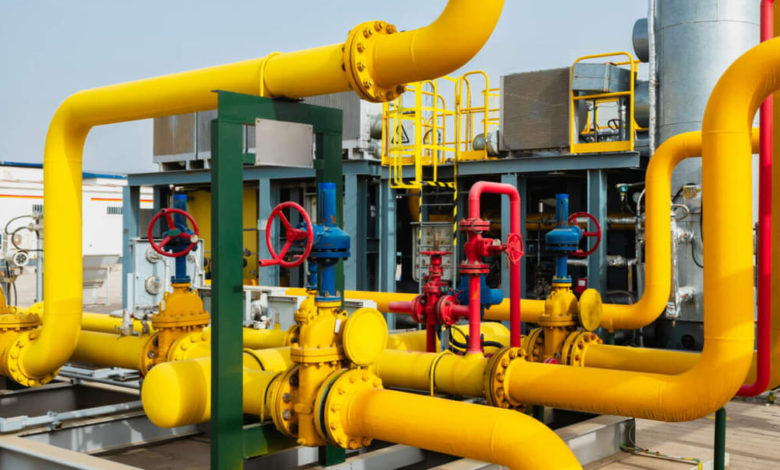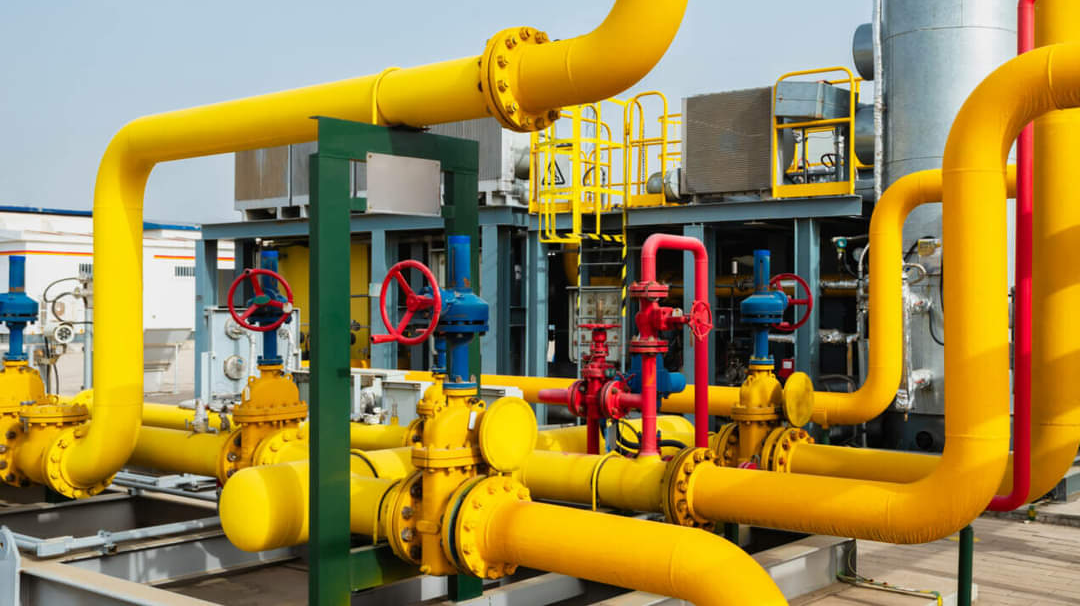Dangote Refinery with a processing capacity of 650,000 barrels per day (bpd).: Transforming Nigeria’s Oil Landscape into the World’s Largest
Dangote Refinery Is The Most Larges Refinery With Capacity Production Of Over 650,000 barrels per day

Dangote Refinery with a processing capacity of 650,000 barrels per day (bpd).: Transforming Nigeria’s Oil Landscape into the World’s Largest
Introduction:
In the heart of Nigeria, a remarkable transformation is underway with the Dangote Refinery. Positioned to become the largest refinery in the world, this colossal project is not only a symbol of ambition but also a game-changer for Africa’s oil and energy sector. In this blog post, we’ll explore the significance of the Dangote Refinery, its impact on Nigeria and the global energy market, and the remarkable journey behind its construction.

The Vision and Scale of Dangote Refinery:
- Unprecedented Scale: The Dangote Refinery, located in the Lekki Free Trade Zone of Lagos, Nigeria, is set to be the largest single-train petroleum refinery globally, with a processing capacity of 650,000 barrels per day (bpd).
- Integrated Complex: This refinery is not just about refining crude oil; it’s a part of an integrated petrochemical complex. It includes a fertilizer plant and a petrochemical unit, making it a multifaceted facility that can produce a range of products, from refined petroleum to petrochemicals and fertilizers.
Impact on Nigeria:
- Reducing Import Dependency: Nigeria, despite being an oil-producing nation, has long been heavily reliant on importing refined petroleum products due to a lack of domestic refining capacity. The Dangote Refinery aims to change this by significantly reducing import dependency and bolstering national energy security.
- Economic Growth: The refinery has the potential to stimulate economic growth by creating thousands of jobs during construction and operation. It will also attract investments in associated industries, including logistics and manufacturing.
- Foreign Exchange Savings: By producing locally, Nigeria can save substantial foreign exchange currently spent on importing refined petroleum products.
Global Implications:
- Global Oil Market: The Dangote Refinery has the capacity to influence the global oil market. Its ability to refine and export petroleum products may impact global prices and trade dynamics.
- African Energy Hub: Nigeria could position itself as an energy hub for Africa, exporting refined products to neighboring countries, thus reducing their dependence on imports.
- Competition and Innovation: The presence of a world-class refinery in Africa may stimulate competition and innovation in the global refining industry.
Challenges and Milestones:
- Construction Challenges: The project has faced its share of construction delays and challenges, including financing hurdles and technical complexities.
- Environmental Considerations: Environmental concerns and sustainability practices are crucial as the refinery operates.
- Local Content: Balancing international expertise with local content and skills development is essential for the project’s long-term success and its impact on Nigeria’s workforce.
Unprecedented Scale: Pushing the Boundaries of Human Achievement
Human history is filled with remarkable feats that push the boundaries of what we once thought possible. These incredible endeavors, driven by ambition, innovation, and determination, remind us that the limits of human achievement are constantly expanding. In this blog post, we will celebrate the concept of unprecedented scale, exploring some of the most awe-inspiring accomplishments that have redefined our perception of what is achievable.
Exploring Unprecedented Scale:
- The Great Wall of China:
- The Great Wall of China, spanning over 13,000 miles, is one of the most iconic examples of human engineering. Built over centuries, it is a testament to the scale of human determination and cooperation.
- The International Space Station (ISS):
- Orbiting Earth at an altitude of approximately 250 miles, the ISS is a marvel of international collaboration. It represents humanity’s ability to conduct long-term space missions and research on an unprecedented scale.
- The Large Hadron Collider (LHC):
- Located underground near Geneva, Switzerland, the LHC is the world’s largest and most powerful particle accelerator. It allows scientists to study particle physics at energies never before achieved in a laboratory setting.
- The Human Genome Project:
- Sequencing the entire human genome was once considered an insurmountable task. However, the Human Genome Project accomplished it, providing a blueprint of human genetic information on an unprecedented scale.
- The Panama Canal Expansion:
- The expansion of the Panama Canal, completed in 2016, allowed larger vessels to transit between the Atlantic and Pacific Oceans. This engineering marvel required the excavation of millions of cubic meters of earth.
Implications of Unprecedented Scale:
- Scientific Discovery: Projects like the LHC and the Human Genome Project have revolutionized our understanding of the universe and ourselves, leading to breakthroughs in science and medicine.
- Global Connectivity: Infrastructure projects like the Great Wall and the Panama Canal have enhanced global connectivity, trade, and cultural exchange.
- Technological Advancement: Achieving unprecedented scale often spurs innovation and drives the development of new technologies and techniques.
- International Collaboration: Many of these endeavors required international cooperation, emphasizing the importance of global unity in tackling complex challenges.
Challenges and Responsibilities:
- Environmental Impact: Large-scale projects can have significant environmental consequences, highlighting the need for sustainable practices and mitigation measures.
- Resource Management: Managing the resources required for massive undertakings is a complex task, requiring careful planning and allocation.
- Ethical Considerations: The ethical implications of unprecedented scale projects, such as scientific research, must be carefully considered, especially when dealing with potentially far-reaching consequences.

The Power of Integration: Unveiling the Concept of Integrated Complexes
In a world marked by rapid technological advancement and interconnected industries, the concept of an integrated complex has emerged as a dynamic force that drives efficiency, innovation, and multifaceted growth. In this blog post, we will delve into the meaning and significance of integrated complexes, exploring how they are reshaping industries, economies, and the way we approach complex challenges.
Defining Integrated Complexes:
An integrated complex refers to a system or facility where multiple interconnected processes, technologies, and functions work in synergy to optimize output, reduce waste, and enhance productivity. These complexes are characterized by their ability to:
- Combine Diverse Functions: Integrated complexes often bring together various functions or processes that are traditionally separate, such as manufacturing, logistics, and research and development.
- Streamline Operations: They aim to streamline operations by reducing inefficiencies, eliminating bottlenecks, and optimizing resource utilization.
- Drive Innovation: Integration fosters innovation by facilitating cross-disciplinary collaboration and knowledge sharing among different sectors within the complex.
Examples of Integrated Complexes:
- Industrial Parks:
- Industrial parks often house a range of manufacturing, logistics, and support facilities in close proximity, allowing for efficient supply chain management and resource sharing.
- Technology Hubs:
- Technology hubs, like Silicon Valley, integrate research institutions, startups, venture capital firms, and tech giants, creating a thriving ecosystem for innovation and entrepreneurship.
- Energy and Petrochemical Complexes:
- Integrated energy and petrochemical complexes combine the production of fuels, chemicals, and other products, optimizing resource utilization and reducing environmental impact.
- Special Economic Zones:
- Special economic zones integrate various economic activities, including manufacturing, trade, and financial services, to attract foreign investment and stimulate economic growth.
Significance of Integrated Complexes:
- Economic Efficiency: Integration promotes economic efficiency by reducing duplication of infrastructure and optimizing resource utilization, ultimately reducing costs.
- Innovation Ecosystems: Integrated complexes foster innovation by bringing together diverse expertise, fostering collaboration, and creating an environment conducive to creativity.
- Environmental Impact: By optimizing resource use and reducing waste, integrated complexes can contribute to more sustainable practices and reduced environmental impact.
- Job Creation: These complexes often generate employment opportunities across a range of sectors, contributing to regional economic development.
Challenges and Considerations:
- Coordination and Management: Managing diverse functions within an integrated complex can be complex and require effective coordination.
- Environmental Responsibility: It’s essential to ensure that integrated complexes adhere to environmental regulations and prioritize sustainability.
- Social Impact: The impact on local communities and infrastructure should be carefully considered to ensure positive outcomes.

Conclusion: The Dangote Refinery is a testament to visionary entrepreneurship and a significant milestone in Nigeria’s journey to self-sufficiency in the energy sector. As it inches closer to becoming the world’s largest refinery, it not only holds immense promise for Nigeria’s economic growth and energy security but also has the potential to reshape the global energy landscape. The story of the Dangote Refinery serves as an inspiration for innovation, investment, and sustainable development in Africa and beyond.







